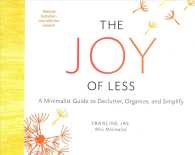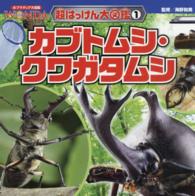- ホーム
- > 洋書
- > 英文書
- > Business / Economics
Full Description
Blood and Treasure is the story of the economics of conflict from the Viking Age to the war in Ukraine.
'Absolutely fascinating and totally absorbing' JAMES HOLLAND
'A brilliant book' MARTIN WOLF, FINANCIAL TIMES CHIEF ECONOMICS EDITOR
'Chock full of marvellous nuggets, this fascinating book is both important and surprisingly cheering' ED CONWAY
'A delightfully quirky approach to military history' SPECTATOR
Wars are expensive, both in human terms and monetary ones. But while warfare might be costly it has also, at times, been an important driver of economic change and progress. Over the long span of history nothing has shaped human institutions - and thus the process of economic development - as much as war and violence. Wars made states and states made wars. As the costs of warfighting grew so did state structures, taxation systems and national markets for debt. And as warfare became ever more destructive the incentive for governments to resort to it changed too.
Blood and Treasure looks at the history and economics of warfare from the Viking Age to the war in Ukraine, examining how incentives and institutions have changed over time. It surveys how warfare may have driven Europe's rise to global prominence, and it explains how the total wars of the twentieth century required a new type of strategy, one that took economics seriously.
Along the way it asks whether Genghis Khan should be regarded as the father of globalisation, explains how New World gold and silver kept Spain poor, ponders why some economists think of witch trials as a form of 'non-price competition', notes how pirate captains were pioneers of effective HR techniques, asks if handing out medals hurt the Luftwaffe in the Second World War and assesses if economic theories helped to create a tragedy in Vietnam. As well as considering why some medieval kings were right to arm their soldiers with inferior weapons, taking some management lessons from Joseph Stalin and asking if a culture of patronage and cronyism helped the Royal Navy rise to greatness.
Underpinning it all is a focus on how and why the economics of conflict have changed over time. Economics can help to explain war and understanding the history of warfare can help explain modern economics.






